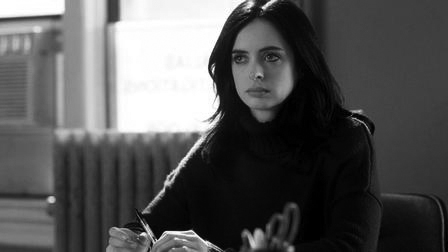Last weekend, my parents came up to visit and watch hockey. While we were in town eating breakfast, my mother asked me a question I never thought I’d hear her ask: “Have you seen ‘Jessica Jones’?” You see, while my parents recently became interested in streaming Netflix (I know, several years behind the times), I hadn’t guessed my mom would be interested in Marvel superhero TV shows. I told her I had, and we briefly discussed “Jessica Jones,” the first season of which premiered in 2015, and the second of which was released March 8, 2018. We also talked about other Marvel productions; I told her how Netflix allowed Marvel to use lesser-known characters to tell more mature stories.
While the conversation moved on, my thoughts still turned to the political issues covered in many of the Marvel Netflix programs: race in “Luke Cage”; gun control and veteran’s affairs in “The Punisher”; and finally, rape and sexual assault in “Jessica Jones”, the first season of which followed the titular super-powered private detective in dealing with a mind controlling villain, Kilgrave, who previously sexually assaulted her, among other horrible crimes. While Kilgrave meets his end, his obsession with controlling Jessica, coupled with his violations of her bodily and mental autonomy, give a direct example of the abuses of women by men in our society. This aligns with the recent #MeToo movement, despite predating it by two years.
Melissa Rosenberg, who created the TV version of “Jessica Jones,” said in an interview with The New York Times that while production on Season Two concluded before the #MeToo movement emerged, other recent events influenced them: “We were writing the second season during the whole Trump/Hillary election, and I was just so angry… We constantly talked about characters that had been trying to be nice for so long finally just saying, ‘Get out of my way!’ Just tapping into the rage Hillary must have felt every day.” Another step the show is taking is that all 13 episodes of Season Two will be directed by a woman, with additional parity sought in the rest of the crew and production team.
These feminist and progressive values were not the initial goal in creating the series—it’s still a television program with the purpose of making money—but it’s what that project has turned into along the way (in no small part due to the inclusion of a variety of voices in the production process).
The issues of our time appear in the entertainment we consume, and although the #MeToo movement appeared after “Jessica Jones,” the two are still related. If conversations about consent, harassment, or sexual assault arise, it doesn’t matter if they were sparked from a superhero TV show, as long as they happened.
This is why my mom can ask me about “Jessica Jones,” and we can have a conversation about sexual assault, or I can take my dad to see “Black Panther” and have a conversation about race. Media is powerful, and ensuring woman and minorities have a hand in its creation ensures that power is on the right side: a fitting message from movies and television based on comic books.



